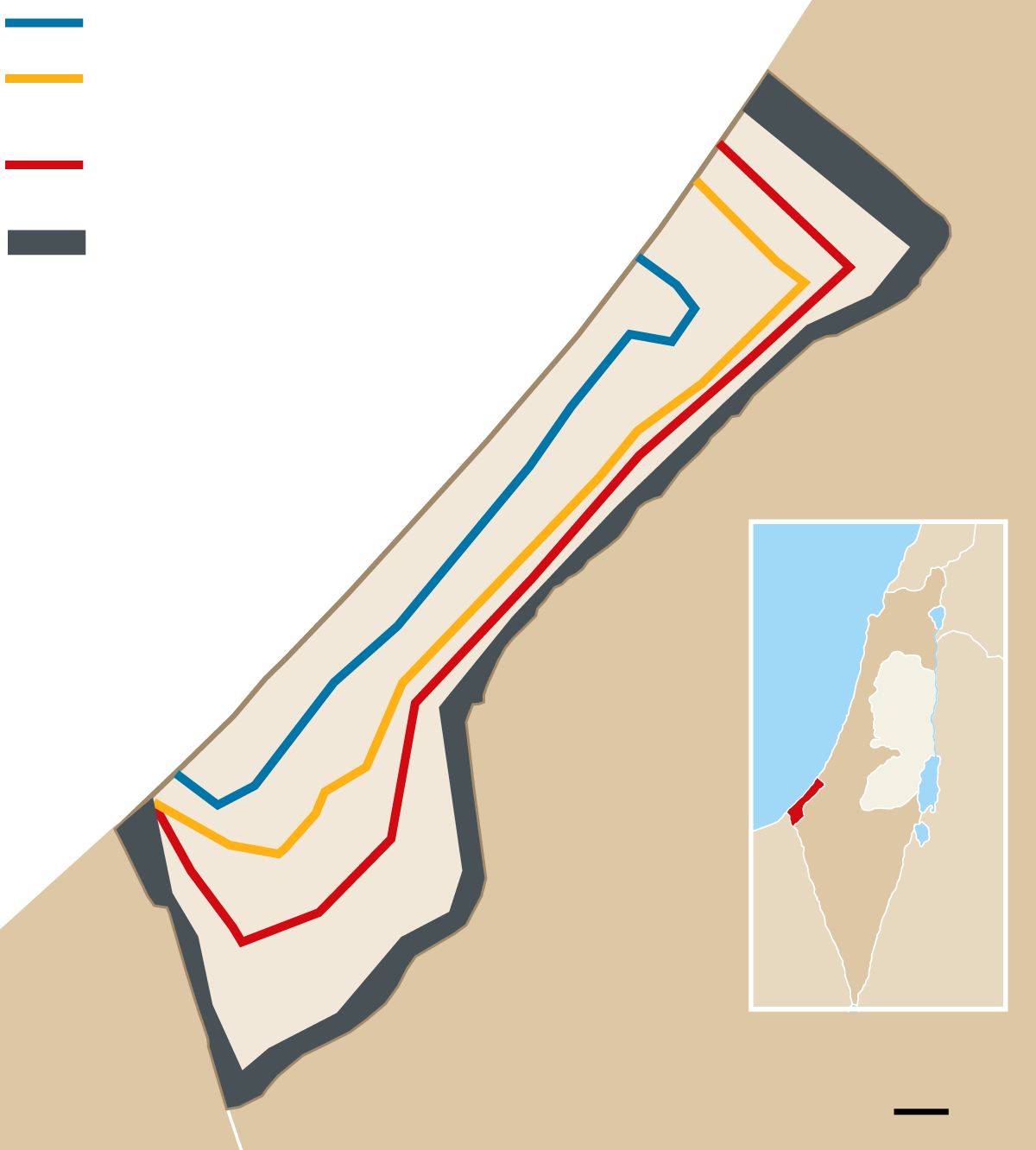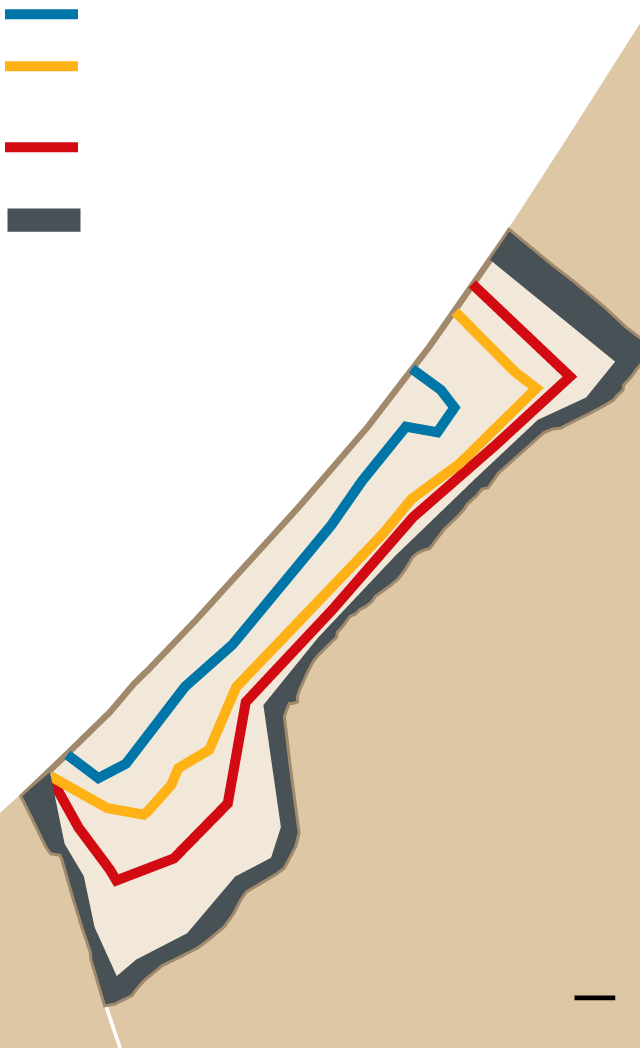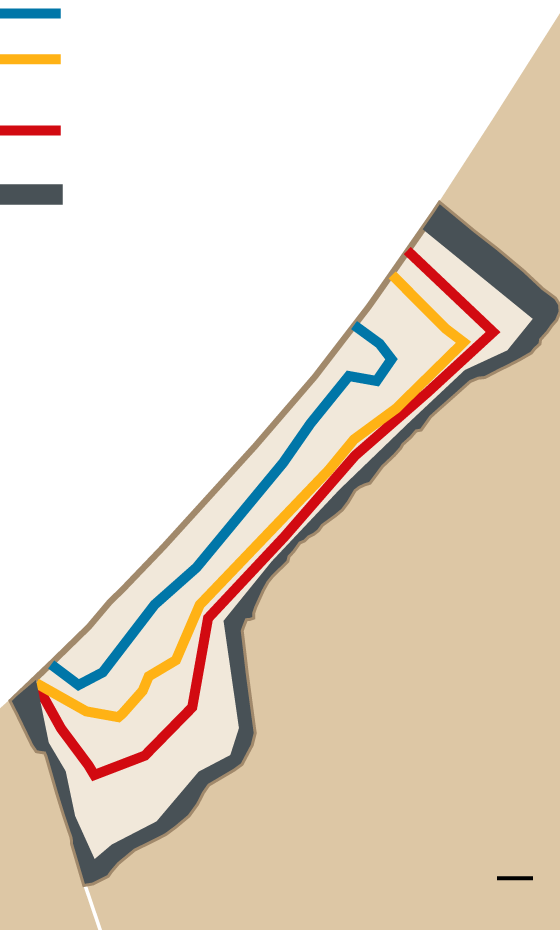Netanyahu reaches agreement with Trump on Gaza's future and threatens to "finish the job" if Hamas doesn't accept it.
The peace plan proposes a kind of US protectorate for the Strip and establishes that there will be no forced displacement.


WashingtonThe last time Israeli Prime Minister Binyamin Netanyahu and US President Donald Trump appeared together from the White House was to announce plans to turn the Strip into a sort of tourist resort. This Monday, the two leaders appeared again to announce the plan they have agreed upon to end the conflict, but without yet having the final approval. Yeah Hamas, which is now being pressured to accept. If it does not do so, or if the pact is broken once it is reached, Netanyahu has threatened to "finish the job" in the Strip, and Trump assured that Israel will have the "full support" of the United States to achieve this. The Zionist leader's fourth visit to Washington took place when the genocide in Gaza had already claimed the lives of 66,000 Palestinians.
Likewise, the future that the plan proposes for the Palestinian population remains vague and uncertain. The lack of specifics about what life will be like for Gazans the day after the war already predicts where they will occupy on the list of priorities for rebuilding the Strip. The only thing that would be guaranteed, according to the text, is that "no one will be forced to leave Gaza, and those who wish to leave are free to do so as well as to return." The acceptance of a Palestinian state remains conditional, although it is recognized as an "aspiration." If the entire process is completed—including the reform of the Palestinian Authority—"the conditions could finally lead to a credible path toward self-determination and a state of their own for the Palestinians."
According to Reuters, the Qatari prime minister and Egypt's intelligence chief have forwarded the proposal to Hamas, and the Palestinian group's negotiators have said they will review the document "with goodwill" and provide their response.
Trump and Netanyahu are closing ranks to focus pressure on the armed group, although the agreement must also be accepted by Israel. The text, which the White House sent shortly before the press conference, uses the conditional tense for both sides. Netanyahu stated that the 20 points set out in the document are "consistent with the five principles" that his coalition government has established to end the war and what the post-war scenario should look like.
"Gaza will be demilitarized," Netanyahu explained. "Israel will retain security responsibility, including a security perimeter for the foreseeable future. And finally, Gaza will have a peaceful civilian administration that will not be in the hands of either Hamas or the Palestinian Authority." On social media, Benny Gantz, one of the leading figures of the parliamentary opposition in Tel Aviv, has already approved the text: "Trump's plan for Gaza must be implemented."
An American protectorate
Trump has confirmed that a transitional administration will be established the day after the end of the conflict to govern the Strip and that Former British Prime Minister Tony Blair will be part of itBut the person who will lead this body will be Trump himself, who has stated that "the leaders of the Arab world and Israel, and everyone involved" have asked him to do so.
Under this type of US protectorate, Washington will collaborate with Arab and international partners to create temporary alternative security forces, under the name of the International Stabilization Force (ISF), which will be deployed immediately in Gaza and, as it expands its reach, the troops, according to the text, "will withdraw based on standards, milestones, and timelines related to demilitarization that will be agreed upon between the IDF, the ISF, the guarantors, and the United States."
The transitional administration proposed by Trump does not differ much from the announcement he made at the press conference seven months ago with Netanyahu, where he already hinted at the idea that the United States would take "charge" of the Gaza Strip. "We will take over [Gaza] and we will be responsible for dismantling all dangerous unexploded bombs and other weapons there, level the land, demolish the destroyed buildings, create economic development that will provide unlimited jobs and housing for some people, to get the job done he shocked the entire international community with the idea.
Trump thanked Netanyahu for "agreeing to the plan" and allowing "an end to the death and destruction" that the region has suffered, while boasting about his work to bring "peace" back to the Middle East, with his eyes set on the Nobel Peace Prize. In turn, the Israeli prime minister also thanked him for his involvement: "Under your leadership, we are taking the next step to win the war and expand peace."
The plan states that if Hamas accepts the proposal, all hostages must be released "immediately, and no later than 72 hours." If they don't accept it, Trump has said that Israel will have "full support" to put an end to Hamas. The US president has used the same formula as Netanyahu. used at the UN General Assembly when he said that he had to "finish the job in Gaza." "If Hamas rejects the agreement, which is always possible, they will be the only ones left (without doing so) [...] But if not, as you know, Bibi [Netanyahu], you would have harmful support to do what you should do."
Gradual troop withdrawal
According to the proposal presented by the White House, "if both sides" accept it, "the war will end immediately." This cessation of hostilities will entail "Israeli forces withdrawing to the agreed-upon line to prepare for the release of the hostages," during which time "all military operations [...] will be suspended" and the battle lines will be "frozen until the conditions for a complete phased withdrawal are met." On the map attached to the plan, the Israeli army's withdrawal line is located at the Rafah line.
During the meeting with Netanyahu, Trump also arranged a call with Qatari Prime Minister Mohammed bin Abdulrahman bin Jasim Al Thani. During the three-way conversation, Netanyahu expressed his regret to Al Thani for theattack on Qatar in early September with the aim of eliminating Hamas members.
International rejection
The possibility of an end to hostilities had been in the air for days, although at the UN Netanyahu made it explicit that he must "finish the job." in Gaza and that he does not intend to accept the existence of a Palestinian state. He spoke these words before a practically empty Assembly, in which his delegation tried to fill with applause the seats that the rest of the countries had left empty as a symbol of protest. The Israeli's words contrasted with those of Trump, who shortly before had assured that "there could be an agreement" and that "there will be peace." Even the Republican said on Thursday that he would not allow Israel to annex the West Bank.
Since that moment of visible disagreement, the diplomatic machinery had continued working over the weekend to try to bring Netanyahu closer to the president's plan to end the conflict. The special envoy for the Middle East, Steve Witkoff, met on Sunday with the Israeli prime minister at the hotel where he is staying in Washington. The meeting, which lasted about two hours according to Times of Israel, Witkoff wanted to get Netanyahu to support Trump's plan, despite the Israeli prime minister's reluctance regarding the role of the Palestinian Authority and the disarmament of Hamas.
Also participating in the meeting, according to the Israeli media, was Jared Kushner, Trump's son-in-law. Kushner owns a real estate company and has repeatedly commented on the business opportunity he sees in the Strip once the war is over. In a meeting in March, he emphasized the "valuable" nature of Gaza's waterfront land.



